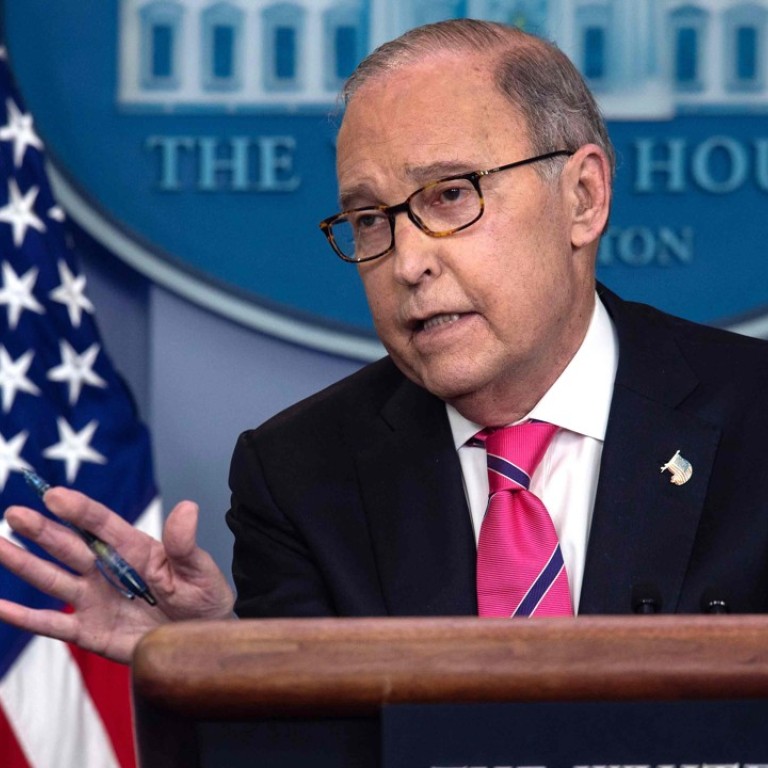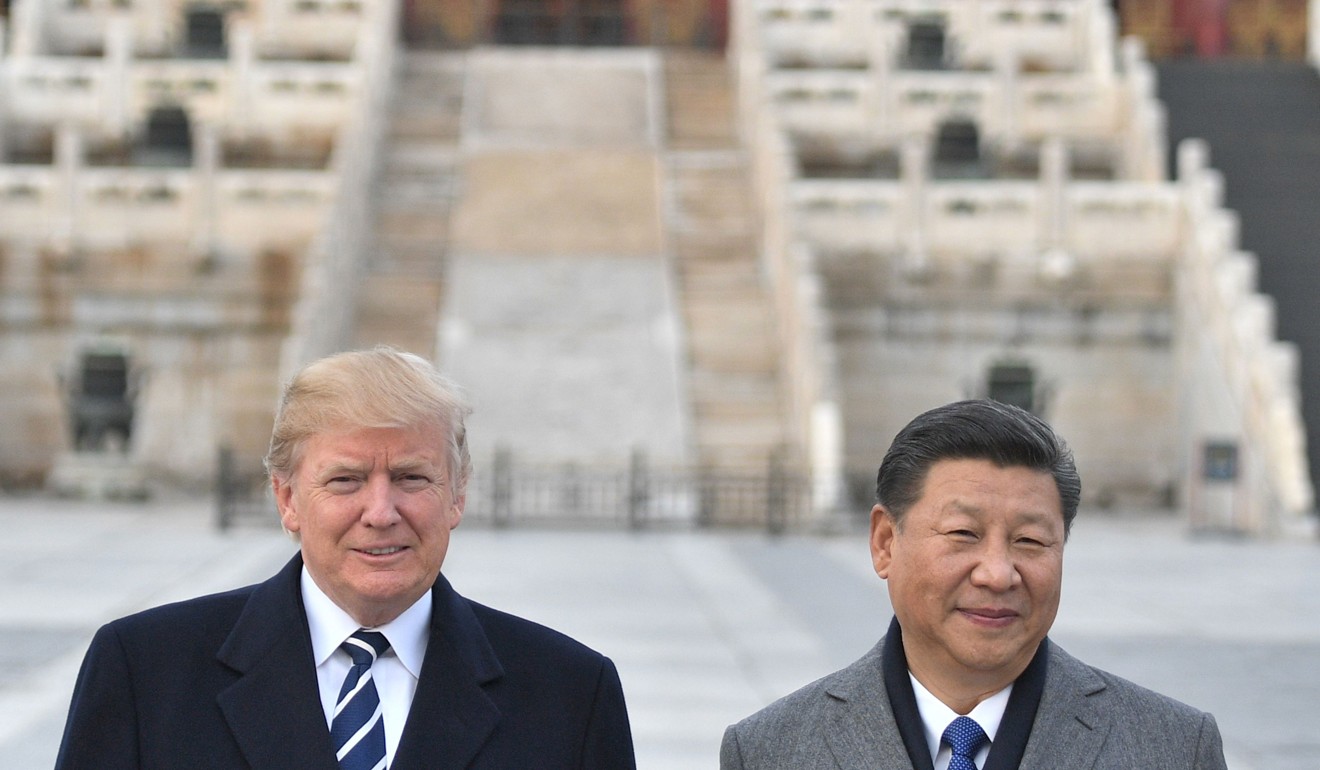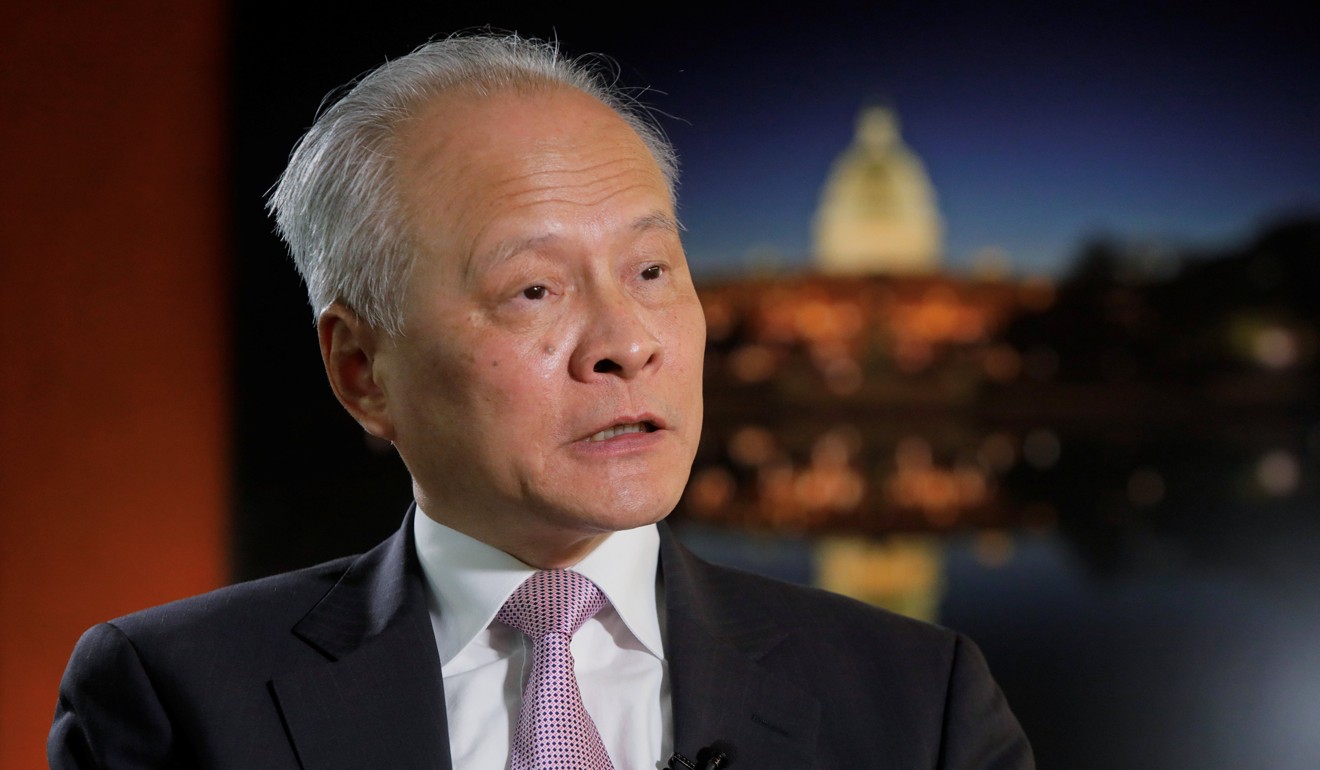
Larry Kudlow plays up prospect ‘a deal can be made’ on trade between Trump and Xi
- The White House economic adviser walks back US President’s comments that it is ‘highly unlikely’ tariffs will be eased in trade war
- A sense of urgency grows about the need to resolve the stand-off ahead of talks this week at the G20 meeting in Argentina
US President Donald Trump’s top economic adviser Larry Kudlow sought on Tuesday to counter pessimism about whether Trump and his Chinese counterpart Xi Jinping will be able to strike a deal at the G20 summit to conclude the nations’ months-long trade war.
On Monday, Trump said he did not expect to de-escalate a scheduled hike in tariffs his administration has imposed on Chinese imports in the new year. Kudlow, though, tried to walk that position back, saying the president believed “there’s a good possibility that a deal can be made”.
“And he is open to that,” Kudlow, director of the National Economic Council, added.
Confirming the South China Morning Post’s reports that Trump and Xi would be meeting over dinner, Kudlow said at Tuesday’s White House press briefing that the two leaders would be joined by trade representatives from both sides.

“If China will come to the table – or in this case the dinner table – with some new ideas, and some new attitudes, and some new cooperation, as [President Trump] said, there’s a good possibility they could make a deal,” he said.
In an interview published on Monday by The Wall Street Journal, Trump said he was “very happy with what’s going on right now”, including the 10 per cent tariffs he placed on US$200 billion in Chinese imports. Moreover, those tariffs are expected to rise to 25 per cent on January 1, and Trump said that it was “highly unlikely” he would suspend that hike in the tax rate.
“We’ve only used a small portion of what we have to use because I have another US$267 billion to go if I want,” Trump said, referring to the remainder of Chinese goods not yet subject to import duties.
Repeating that threat on Tuesday, Kudlow said that such action remained on the table, but “may not be the first choice”.
Trump has not asked US officials to draw up a trade proposal for China, Kudlow says
Kudlow, known as a staunch advocate for free trade throughout his career, brushed off questions about the damage an escalation of that order could inflict on the US economy, saying that the US was in “far better shape to weather this than the Chinese are”.
While the Trump administration remains confident in the US economy’s position to weather a protracted trade war, prominent business groups have in recent weeks said the need for a resolution is urgent.
In a statement this month, Freedom Partners, Americans for Prosperity, and the Libre Initiative – all advocacy groups backed by the conservative activist brothers David and Charles Koch – said that “continued escalation of tariffs has come at significant cost to the global economy”.
The trade war had “harmed businesses, farmers, consumers, workers, and families worldwide”, the statement said, appealing to Trump and Xi to “meet the challenge of global leadership”.
Beijing and Washington hammer out details for the summit between Xi and Trump
Under the shadow of the trade war, during the third quarter this year China experienced its slowest growth in 10 years, according to the latest economic figures to come out of the country.
Despite the “good possibility” that Trump and Xi would make a deal during the G20 meeting in Buenos Aires, Argentina, Kudlow said a resolution was contingent of a number of factors, among them a commitment from China to resolve issues of forced technology transfer, tariff and non-tariff barriers, and intellectual property theft.
“We want a world ideally of zero tariffs, zero non-tariff barriers and zero subsidies,” he said. “Whether they can get through all of that remains to be seen.”

China’s ambassador to the US, Cui Tiankai, expressed optimism on Monday that the talks would be fruitful, telling The Wall Street Journal that he was hopeful the tête-à-tête between the two men would “enable us to make further progress on many fronts, including on the economic and trade issues”.
Failure to bring the trade war to a close, the ambassador said, could cause a fragmentation of the global market. “Although the current economic situation in the US is good, people cannot rule out the possibility of another – I don’t want to use the word ‘crisis’ – a similar situation to what happened 10 years ago,” he said.
Responding to Cui’s comments about the financial crisis a protracted trade war might bring, Kudlow said: “The ambassador makes a point. Now, if he would do his part, or his government would do their part, then we can all make a much better point.”
“If we do have a free trading system,” said Kudlow, “we will benefit enormously.”
“Frankly, we will benefit, [China] will benefit and the rest of the world will benefit.”

